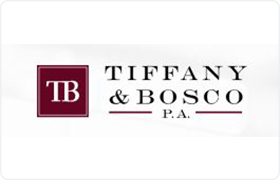Youngtown Landlord-Tenant Lawyer, Arizona
Sponsored Law Firm
-
 x
x

Click For More Info:
-
Tiffany & Bosco, P.A.
2525 East Camelback Road Floor 7 Phoenix, AZ 85016» view mapReal Estate Law Experience. Commitment. Results.
For over 50 years, we have based our legal services on understanding and meeting our clients’ ever-changing legal needs.
800-922-6320
Raymond Kenney
Landlord-Tenant, Real Estate, Estate, Divorce & Family Law, Bankruptcy
Status: In Good Standing
James S Gibson
Commercial Real Estate, Landlord-Tenant, Banking & Finance, Business
Status: In Good Standing Licensed: 25 Years
James S. Gibson
Commercial Real Estate, Landlord-Tenant, Banking & Finance, Business
Status: In Good Standing
Brett Louis Horvath
Commercial Real Estate, Landlord-Tenant, Business
Status: In Good Standing Licensed: 18 Years
Scott Booth
Construction, Landlord-Tenant, Mediation, Commercial Real Estate
Status: In Good Standing Licensed: 19 Years
Terry L Rakow
Landlord-Tenant, Litigation, Collection, Bankruptcy & Debt
Status: In Good Standing Licensed: 51 Years
 Richard Gramlich Phoenix, AZ
Richard Gramlich Phoenix, AZ AboutTiffany & Bosco, P.A.
AboutTiffany & Bosco, P.A. Practice AreasExpertise
Practice AreasExpertise

